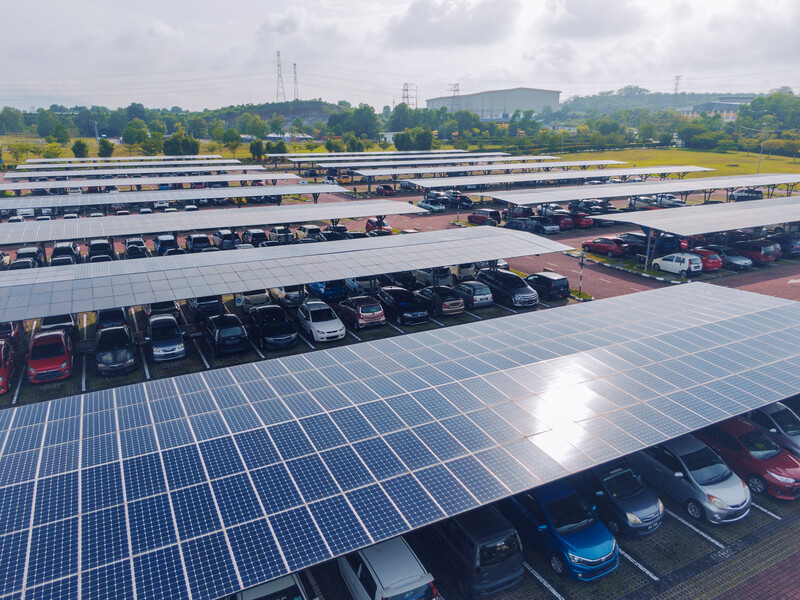
As a signatory to the United Nations Global Compact (UN GC) and supporter of the United Nations Sustainable Development Goals (SDGs), Maxeon is at the forefront of solar sustainability. Our purpose of Powering Positive Change governs our approach to sustainability and our industry-first green credentials for our panels and LEED-certified facilities are a testament to our commitment.
So, what does that mean for our customers?
It means we invest in boundary-pushing solar technologies to develop more efficient, sustainable, and longer-lasting panels At Maxeon, we aim to produce solar panels as clean as the energy they produce. The same panels that lead the industry in efficiency and reliability are also aiming at being the most sustainably made.
It also means we have embedded long-term environmental and sustainability targets into our daily operations because actions speak louder than words.
With panels on both roof and carport, our Malaysian facility is fostering the use of solar energy.
Creating a circular economy for the solar industry
While we continue to push the boundaries of solar technology and invest in R&D to continually innovate, one thing stays the same – our commitment to sustainability.
Central to that commitment is a passion for leading the way in developing a circular economy for the solar industry. In developing our solar panels, we strive to get the most out of materials, keep those same materials in use for as long as possible, and design them to be cycled back into the economy, eliminating waste. This approach is also a vital part of the renewable energy transition.
We’re committed to being at the forefront of creating a circular economy in the solar industry by embedding circularity in our operations and product designs. We are also the first in the industry to receive Cradle-to-Cradle certification and NSF no landfill certification and the first and only solar panel manufacturer to disclose its material ingredients through the International Future Institute’s Declare label.
We approach sustainability with operational rigour, which is why we set realistic targets and measure our energy and emissions outputs, water management, and waste. We’re committed to improving our water management and waste recycling practices by 2030 by 5% and 10%, respectively. We will make every effort to maximise Maxeon’s use of renewables on site and are working to improve our energy intensity per site and product line.
In our goal to be even more transparent about our sustainability targets and progress, we will estimate the company’s Carbon Footprint, as we have for the Energy Payback Time of our solar panels.
Measuring our sustainability progress
Through our operations and purpose, we have enabled more than one million customers to positively impact the world by transitioning to solar energy.
And as we work to reduce greenhouse gas emissions from our operations, we aim to lead the global transition to clean energy by enabling our customers to achieve their emission reduction targets.
b
